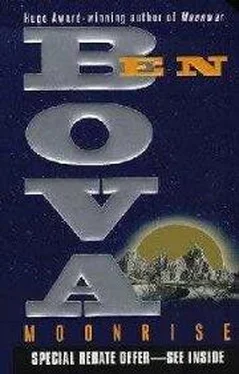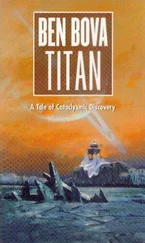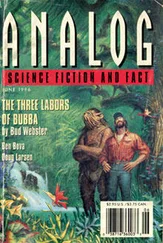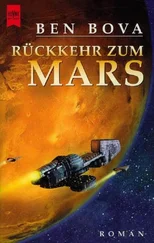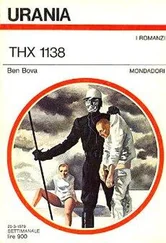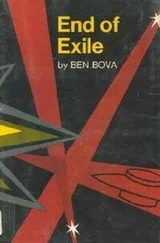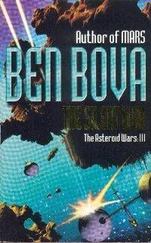Ben Bova - Moonrise
Здесь есть возможность читать онлайн «Ben Bova - Moonrise» весь текст электронной книги совершенно бесплатно (целиком полную версию без сокращений). В некоторых случаях можно слушать аудио, скачать через торрент в формате fb2 и присутствует краткое содержание. Год выпуска: 1996, ISBN: 1996, Издательство: Hodder & Stoughton Ltd, Жанр: Космическая фантастика, на английском языке. Описание произведения, (предисловие) а так же отзывы посетителей доступны на портале библиотеки ЛибКат.
- Название:Moonrise
- Автор:
- Издательство:Hodder & Stoughton Ltd
- Жанр:
- Год:1996
- ISBN:978-0-340-68248-7
- Рейтинг книги:4 / 5. Голосов: 1
-
Избранное:Добавить в избранное
- Отзывы:
-
Ваша оценка:
- 80
- 1
- 2
- 3
- 4
- 5
Moonrise: краткое содержание, описание и аннотация
Предлагаем к чтению аннотацию, описание, краткое содержание или предисловие (зависит от того, что написал сам автор книги «Moonrise»). Если вы не нашли необходимую информацию о книге — напишите в комментариях, мы постараемся отыскать её.
Moonrise — читать онлайн бесплатно полную книгу (весь текст) целиком
Ниже представлен текст книги, разбитый по страницам. Система сохранения места последней прочитанной страницы, позволяет с удобством читать онлайн бесплатно книгу «Moonrise», без необходимости каждый раз заново искать на чём Вы остановились. Поставьте закладку, и сможете в любой момент перейти на страницу, на которой закончили чтение.
Интервал:
Закладка:
“Gregory? Afraid that Brad was trying to kill him?”
“Not physically. Business-wise.”
“Then why the gun?” Joanna asked.
Paul shrugged. He had no answer for that.
“You just be careful of Brad,” she repeated. “If he says he wants to be your friend, you don’t need an enemy.”
The limo slowed at the security gate, then headed toward the airfield’s terminal building. In the distance Paul could see the graceful conical shape of the Clippership outlined in spotlights against the darkening evening sky, a wisp of white vapor drifting from its liquid oxygen feed line.
Trying to summon up a confidence he didn’t feel, Paul said to Joanna, “Well, let’s forget about it for now.”
“Forget about it?”
“We’re on our way to our honeymoon, remember? And besides, there’s not much we can do about all this. The ball’s in Greg’s court”
Joanna nodded tightly. “That’s what bothers me.”
They rode the open-cage elevator to the Clippership’s hatch, ducked through and climbed the ladder between the passenger rows to their reclining seats. Only six passengers this trip; Paul recognized four of them, including Hiram Tinker, the astronomer who tended the orbital telescopes that the corporation operated on contract from a consortium of universities.
“Hi, Hi!” Paul said brightly as he helped Joanna into her chair. Everyone called the man Tink, but Paul always made a pun out of his first name, even though he dreaded the flood of puns Tinker poured out in return.
“Hello boss boss.”
Paul slid into his own chair, across the ladderway from Joanna, and started strapping in before lowering the chair to its full reclining position. “Boss boss?” he asked Tinker, over his shoulder. “You stuttering?”
Tink had always called Paul the boss, since he worked in Paul’s space operations division.
“Well, now you’re my new boss’s boss, aren’t you?” Tink countered. “That makes you boss boss.”
“Boss squared,” said one of the other technicians, from a back row.
“Running dog capitalist expropriator of the workers,” came another voice. Paul knew whose, without having to turn around: Alex Wodjohowitcz, tractor teleoperator and technician, on his way to a three-month tour of duty on the Moon.
Paul jabbed a finger toward Joanna. “Here’s the real boss,” he said. Then wondered how humorous the remark really was. Joanna cocked an eyebrow at him, barely smiled. Once he was settled in the seat next to her, Joanna leaned I across the aisle separating them to ask in a whisper, “Who are those people?”
“Our employees,” Paul whispered back. “Some of the best people in the world. In the whole Earth-Moon system, as a matter of fact.”
“And that one who called you a running dog? Why do you let him speak to you like that?”
“Wojo?” Paul laughed. “Wojo’s the most creative cusser I’ve ever met. I’ve known him more than six years now and I’ve never heard him resort to profanity or repeat himself. But he sure can bum your ears off.”
“Liftoff in two minutes,” came a voice from the cockpit, over the intercom speakers.
Paul knew that the astronaut pilot and co-pilot were in the cockpit strictly as redundancies. The Clippership was preprogrammed and monitored from the ground, just as it would be if it were carrying all freight and no people at all. Only if something went disastrously wrong would the human crew have anything to do. And then, Paul thought, it would probably be too late. But the government agencies had insisted on a human crew when human passengers were going aloft. Takes two paying seats out of our cash flow, Paul fumed whenever he thought about the outmoded regulation.
Then one of the astronauts came clambering down the ladder to check that all the passengers were properly strapped in and had cranked their seats back to the full reclining position for takeoff. He said a brief hello to Paul, smiled at Joanna, and then climbed back up into the cockpit and closed the hatch above Paul’s head.
Paul glanced across the narrow aisle and saw that Joanna looked pale. She’s never been in space before, he knew. He reached out his hand and touched her shoulder. She clasped his hand in hers. Her palm felt cold, clammy.
Grinning at her, Paul whispered, “You’ll love it.”
She nodded, but looked extremely dubious.
LANA GOODMAN
She was the first person to suffer a heart attack on the Moon.
Dr. Lana Goodman was a tiny wisp of a woman, a brilliant fifty-two-year-old with degrees in medicine, physiology, and biophysics. She was rumored to be on track for a Nobel, and could have had her pick of any university in the world. Indeed, she was teaching and conducting research in low-gravity physiology at Johns Hopkins when she applied for a position with Masterson Aerospace.
“I want to go to the Moon,” she told the corporation’s astonished personnel director. “I’ve always wanted to go there. I’ve had experience aboard space stations, but I haven’t gotten to the Moon yet and I want to do it before I get too old.” : Masterson took her on as a consultant, making maximum public relations mileage out of it, and sent her on a well-publicized tour of duty at Moonbase.
Dr. Goodman was expected to look after the medical needs of the twenty-eight men and women who happened to be working at Moonbase at the time, as well as continue her own research on how the human body adapts to low gravity. Her heart attack was totally unexpected, caused by a clot thatlodged in one of the smaller coronary arteries. She was eating breakfast when she felt a terrific pain in her chest, vomited up everything in her stomach, and half-collapsed on the galley table. Her skin turned gray and sweaty.
Since she was Moonbase’s resident doctor at the time, she was attended by two of the base’s paramedics — both of them engineers with other duties who stood by for medical emergencies. They slapped an oxygen mask over her nose; one of them shot a load of clot-busting tissue plasminogen activator into her arm, while the othef pushed aspirin and nitroglycerin tablets through her pain-clenched teeth.
The paramedics contacted Masterson’s medical staff in Savannah, who plugged them in to the finest cardiac centers in Boston, Houston and even Johns Hopkins in Baltimore. Within hours Dr. Goodman was out of danger, thanks mainly to the clot-dissolving properties of the TPA.
Within three days she could walk around almost normally, in the gentle gravity of the Moon.
But she could not return to Earth.
Part of the problem was the acceleration of the rocket boost from the lunar surface, she knew, although that was only a minor part of it, since the liftoff was much less stressful than a takeoff from Earth would have been. There were gee stresses in re-entering Earth’s atmosphere, too. They were greater, but she felt confident that she could handle them.
The real problem was the condition of her heart, weakened by weeks of living in low gravity and now damaged by the infarction. She feared that she would be a cardiac cripple on Earth, with its high gravity.
After days of consulting with her Earthbound medical colleagues, Goodman decided she would have to stay on the Moon for weeks, perhaps months, while slowly building up her cardiac strength through exercises specially designed to strengthen her heart muscle.
She wanted to resume her medical duties, but the corporation had sent up a strapping young M.D. to replace her as medical officer — and to watch over her while she recuperated. Looking more like a football hero than a physician, the young man supervised her exercise regimen with ruthless tenderness.
Dr. Goodman continued her research, but this was not enough to fill her increasingly boring days in the cramped underground warrens of Moonbase. She had brought her camera with her, though, and started taking photographs. Not of the busy, harried, sweaty people who lived cheek-by-jowl in Moonbase. She got into a spacesuit and went out on the surface to take photos of the grandeur of the Moon itself.
Читать дальшеИнтервал:
Закладка:
Похожие книги на «Moonrise»
Представляем Вашему вниманию похожие книги на «Moonrise» списком для выбора. Мы отобрали схожую по названию и смыслу литературу в надежде предоставить читателям больше вариантов отыскать новые, интересные, ещё непрочитанные произведения.
Обсуждение, отзывы о книге «Moonrise» и просто собственные мнения читателей. Оставьте ваши комментарии, напишите, что Вы думаете о произведении, его смысле или главных героях. Укажите что конкретно понравилось, а что нет, и почему Вы так считаете.
